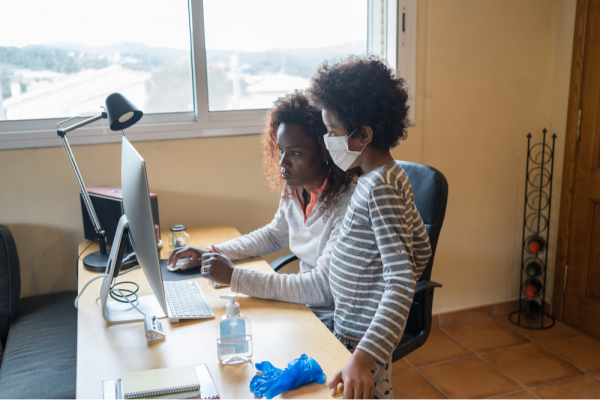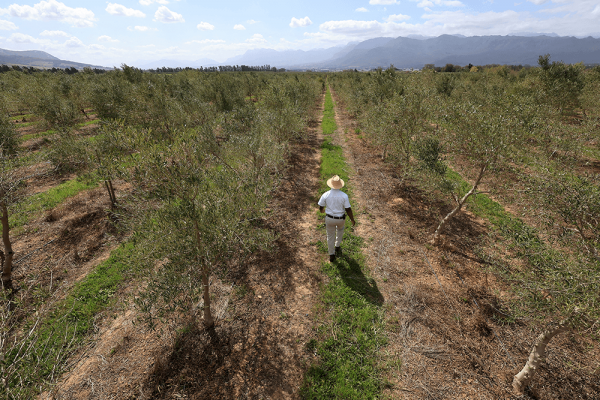Today marks one year since the World Health Organization declared the coronavirus a global pandemic. As we enter year two of this pandemic in the middle of Women's History Month, we must reckon with the fact that women have disproportionately felt the negative impacts; the fallout of this inequity will be felt for years to come.
The COVID-19 pandemic has exacerbated many of the problems women in the U.S. already faced: Women who are experiencing poverty or who belong to marginalized communities are more likely to contract COVID-19 and to die from it. Women are 1.8 times more likely than men to have lost their jobs during the pandemic. Some women are being forced to quarantine in demeaning situations or dangerous households.
Women face greater risk of exposure to the coronavirus because they are more likely to work jobs in service industries or in health care. Fifty-eight percent of the workers in the most at-risk occupations are women, and women make up 78 percent of the workforce across all U.S. health care sector jobs.
But even though many are essential workers, four times as many women as men dropped out of the workforce in a single month last year. Women also often bear the brunt of caring for children and older relatives. Because of school and child care closures, mothers of young children have had to reduce their work hours four to five times more than fathers of young children. For Black and Latina women, those effects were especially severe: Black and Latina women were more likely than white women to be forced out of their jobs by the new demands for child care. Even if coronavirus isn’t racist, our economic system is.
Both domestically and around the world, the COVID-19 pandemic has led to an increase in reports of gender-based violence, including domestic violence, forced marriages, adolescent pregnancies, and child labor. In some countries, violence against women has increased up to 70 percent. In the U.S., domestic violence cases have increased up to 35 percent in some states.
Despite these alarming numbers and the setbacks that women have suffered this year, we have real opportunities for positive change. Here are a few examples.
Every year, I have the privilege of interviewing women faith leaders who are changing our churches and society with their faith-rooted advocacy and work. They are holding political and faith leaders accountable and working to create a global community that centers people who have historically been marginalized by both society and the church. The 11 women featured in this year’s article include pastors and seed-keepers, authors and theologians, activists and organizers. You can read about them here.
This year, we could see ratification of the Equal Rights Amendment, which would offer constitutional protection from discrimination based on sex. The ERA promotes pay equity and job protection for people who are pregnant. It would make it easier to challenge policies that discriminate against women and LGBTQ people. The ERA would also give Congress the power to pass laws against gender-based violence and give the federal government power to hold states accountable if they do not protect women and LGBTQ people against sexual and domestic violence.
We can also respond to the problem of domestic and gender-based violence by urging Congress to reauthorize the Violence Against Women Act. VAWA expired in 2018; the House passed a reauthorization bill in 2019, but the Senate declined to take a vote. We know VAWA works: In the 15 years after its passage in 1994, annual incidence of intimate partner violence decreased by 53 percent. VAWA provides underserved communities across the country with the resources, funding, and law enforcement access to respond to and help prevent intimate partner violence. It also gives survivors access to housing and employment, which is all the more needed during this public health crisis. This week, the House introduced a reauthorization bill.
The global pandemic has presented a major challenge to our work for gender equality. My hope is that this pandemic has also reinforced the truth that when one part of the body suffers, we all suffer. This crisis can become energy to enact real change. Join me in creating a world where all people, regardless of gender or sexual orientation, are given equal respect and opportunity, so that when one part of the body rejoices, we will all rejoice.
Got something to say about what you're reading? We value your feedback!







